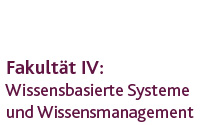Supporting Learnings and Education on the Fringe of the Digital Sphere (SEEDS)

SEEDS
Supporting Learnings and Education on the Fringe of the Digital Sphere
- Category: Erasmus+
- Duration: 2021-2023
- Funded by: Erasmus+ Strategic Partnership
Project Summary
The corona pandemic has uncovered a number of systemic inequalities with regard to education and access to learning opportunities. Across countries and settings in the EU, the necessity to resort to the digital sphere with learning has shown that it is not equally possible for all members of a society to follow suit. Particularly vulnerable groups (including people with a migration background, people with a refugee background, non-native speakers), who were already having a difficult experience before, have now been even more strongly left behind in terms of education. For some it is the lack of access to equipment (Tablets, or Laptops and PCs) with necessary digital technologies, that prevents their engagement in a digital learning sphere. For others it is the prevalent distance to learning institutions and a perception of the education system as a closed space that prevents their engagement. Their educational opportunities remain unexplored and chances for societal participation limited as a result.
Working with social workers as well as the newly emerged profession of cultural mediators who is acting as a bridge towards municipalities and local educational institutions such as schools, and extending their personal reach-out towards the digital sphere by means of chatbots, the SEEDS project proposes a combination of social and digital outreach as a means to mitigate this effect. Needed learning contents will be communicated in a new way by means of chatbots, where municipalities and educational institutions can create learning materials in a pre-defined way, and cultural mediators and social workers can provide the learning material in the backend in a pre-defined way. The server will send the learning material to the chatbot, where the user can access a variety of learning materials (based on classes but also on the material itself such as videos, PDFs, texts, pictures) and can also answer questions. The user receives feedback for the answers and can also track the learning progress.
To achieve this, the SEEDS project takes a step-by-step approach, and: 1) identifies appropriate contents for learning materials in a participatory action research approach involving teachers, municipal officials, cultural mediators, as well as the target group of young and adult learners from socially and culturally diverse, educationally distant family backgrounds; 2) creates templates and guidance for content creation by cultural mediators; 3) conducts a networked evaluation across different learning settings in Europe, thus enabling the testing of the socio-technical system as well as the identification of ‘universal’ European application scenarios.
Project Partners
- University of Siegen, Institute of Knowledge Based Systems and Knowledge Management
- University of Siegen, Chair of Information Systems and New Media
- University of Alicante
- Open Lab Athens

